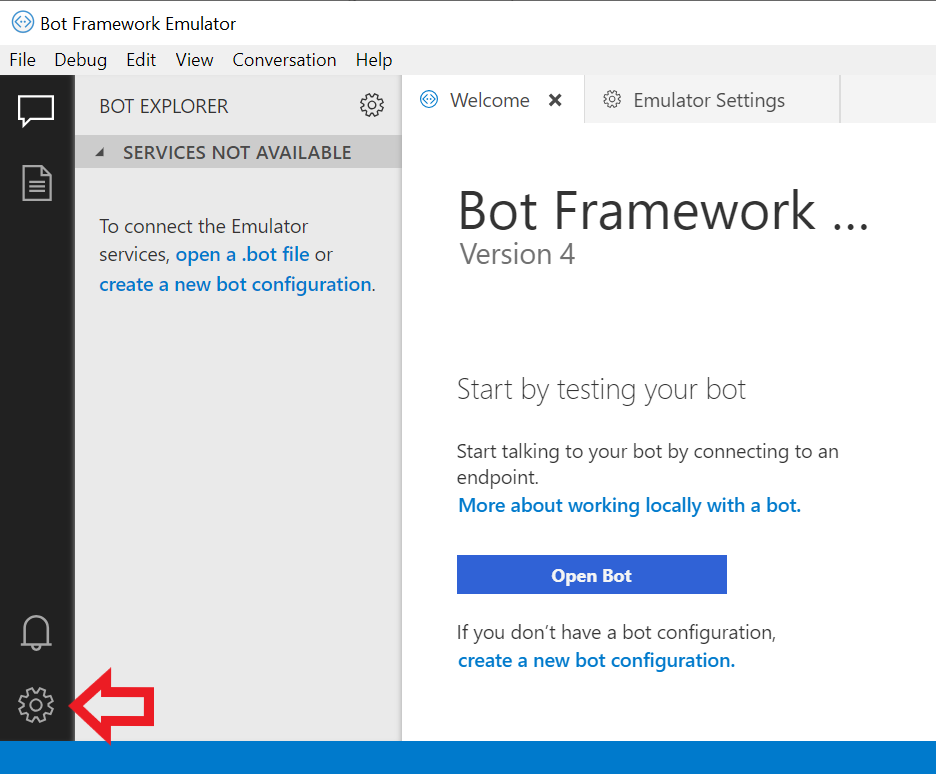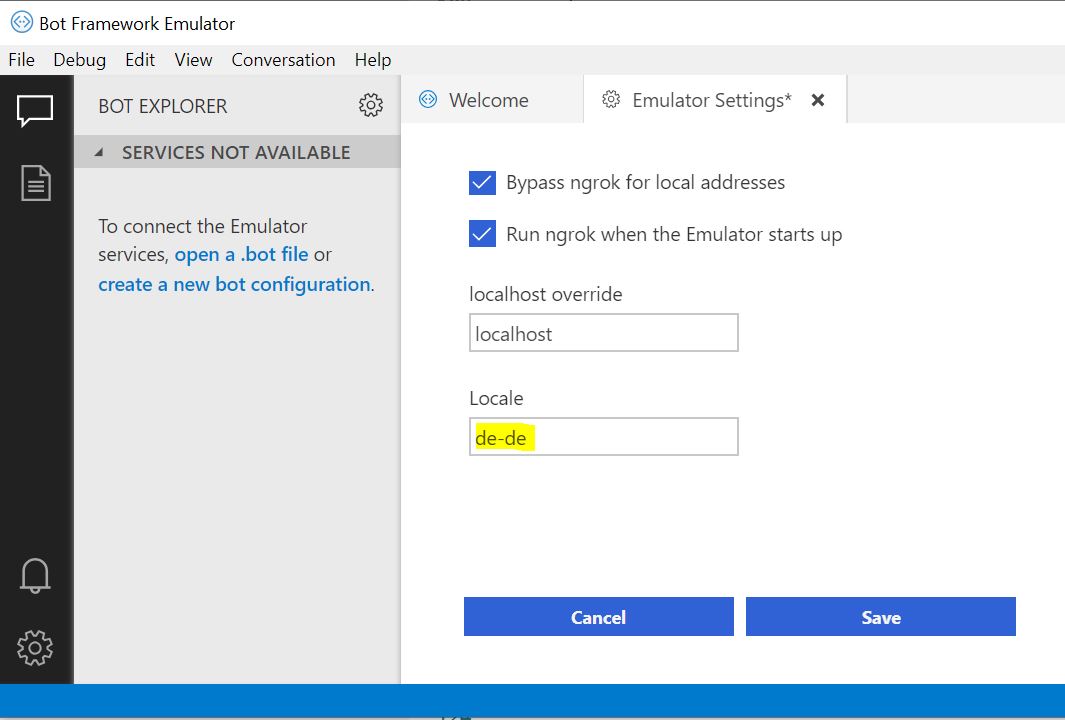Localization : Manage localization across a Virtual Assistant solution
Manage localization across a Virtual Assistant solution
Getting the locale
To capture the user’s locale, the Virtual Assistant uses the SetLocaleMiddleware. For each message that comes in from the user, the CurrentUICulture is set equal to the Activity’s locale property. If Activity.Locale is not available on the activity, the defaultLocale property from cognitivemodels.json is used instead.
Cognitive Models
Each cognitive model used by the assistant (i.e. LUIS, QnA Maker, Dispatch) should be deployed in each language you want to support. The configuration for these models should be included in the cognitiveModels collection in the cognitivemodels.json file.
Example cognitivemodels.json
{
"defaultLocale": "en-us",
"cognitiveModels": {
"en-us": {
"dispatchModel": {
"appid": "",
"authoringkey": "",
"authoringRegion": "",
"name": "",
"region": "",
"subscriptionkey": "",
"type": "dispatch"
},
"languageModels": [
{
"appid": "",
"authoringkey": "",
"authoringRegion": "",
"id": "",
"name": "",
"region": "",
"subscriptionkey": "",
"version": ""
}
],
"knowledgebases": [
{
"endpointKey": "",
"hostname": "",
"id": "",
"kbId": "",
"name": "",
"subscriptionKey": ""
}
]
},
"es-es": {
"dispatchModel": {
"appid": "",
"authoringkey": "",
"authoringRegion": "",
"name": "",
"region": "",
"subscriptionkey": "",
"type": "dispatch"
},
"languageModels": [
{
"appid": "",
"authoringkey": "",
"authoringRegion": "",
"id": "",
"name": "",
"region": "",
"subscriptionkey": "",
"version": ""
}
],
"knowledgebases": [
{
"endpointKey": "",
"hostname": "",
"id": "",
"kbId": "",
"name": "",
"subscriptionKey": ""
}
]
}
}
}
These cognitive models are loaded into a dictionary in Startup.cs as part of the BotSettings.cs class:
Startup.cs
var settings = new BotSettings();
Configuration.Bind(settings);
BotSettingsBase.cs
public Dictionary<string, CognitiveModelConfiguration> CognitiveModels { get; set; } = new Dictionary<string, CognitiveModelConfiguration>();
Then in BotServices.cs, the CurrentUICulture local is used to select the appropriate set of cognitive models to use in the GetCognitiveModels() method:
public CognitiveModelSet GetCognitiveModels()
{
// Get cognitive models for locale
var locale = CultureInfo.CurrentUICulture.Name.ToLower();
var cognitiveModel = CognitiveModelSets.ContainsKey(locale)
? CognitiveModelSets[locale]
: CognitiveModelSets.Where(key => key.Key.StartsWith(locale.Substring(0, 2))).FirstOrDefault().Value
?? throw new Exception($"There's no matching locale for '{locale}' or its root language '{locale.Substring(0, 2)}'. " +
"Please review your available locales in your cognitivemodels.json file.");
return cognitiveModel;
}
Responses
Responses from your assistant are generated through use of Language Generation and the .lg files within the Responses folder of your assistant. We provide a number of different language variations out of the box to get you started.
The provided LocaleTemplateManager will identify the right response based on the `CurrentUICulture.
A fallback policy is also followed to enable a specific locale, e.g.
es-mx, to fallback toes-esif a specific set ofes-mxresponses are not available.
Channel Support
The localization approach is currently supported in the following channels:
- Emulator
- Web Chat
- Direct Line
- Direct Line Speech
Bot Framework Emulator
To test your assistant with different locales, you follow these steps in the Bot Framework emulator:
-
Open the Settings tab.

-
Set your desired locale in the Locale field and click Save

Web Chat
To use this approach in webchat, you can set the locale of the activity by providing the locale parameter when you initialize your WebChat client, like so:
<script>
window.WebChat.renderWebChat(
{
directLine: window.WebChat.createDirectLine({
token: '***'
}),
username: 'Web Chat User',
locale: 'en-US'
},
document.getElementById('webchat')
);
</script>
Direct Line & Direct Line Speech
For Direct Line and Direct Line Speech, your client can pass the locale in the Activity.Locale property to enable localization scenarios.